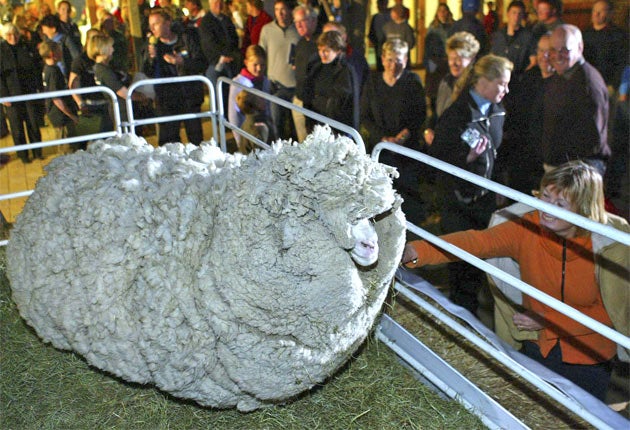RIP Shrek, the sheep that bewitched a nation

In a country where sheep outnumber humans 10 to one, a castrated merino named Shrek stood out from the flock. Found in a mountain cave in New Zealand after six years on the run, he sported a fleece so enormous that he resembled "some Biblical creature", his owner recalls.
Shrek became an instant celebrity; shorn live on national television with the footage broadcast simultaneously on CNN, he subsequently travelled the world, promoting New Zealand wool and raising money for charity. He met Helen Clark, then prime minister, and visiting heads of state, and was the inspiration for at least three books.
Now Shrek is dead, at 16. A funeral is planned, and his ashes are to be scattered on Mount Cook, New Zealand's tallest peak. "He was just an ordinary sheep, went AWOL and hid, and when he was found he became the darling of the nation," said John Perriam, who owns the South Island farm that was his home.
When evaded the annual shearing round-ups by hiding in caves he was assumed to be dead. When he was found in 2004 he was carrying 27 kilos of fleece – about six times the average from a merino, and enough to make 20 large men's suits.
Its auction on the internet was only the start of Shrek's career. He commanded appearance fees of NZ$16,000 (nearly £8,000), and was shorn on a large iceberg off the Otago coast. He raised $150,000 for medical research, and earned an estimated $100m in publicity for wool exporters.
"He didn't really see himself as a sheep," Mr Perriam said. "He had an unbelievable personality. He loved children, and he was really good with the elderly."
Josie Spillane, from the charity Cure Kids, said: "It is the death of an iconic Kiwi. He just happened to be a sheep."
Join our commenting forum
Join thought-provoking conversations, follow other Independent readers and see their replies
Comments
Bookmark popover
Removed from bookmarks